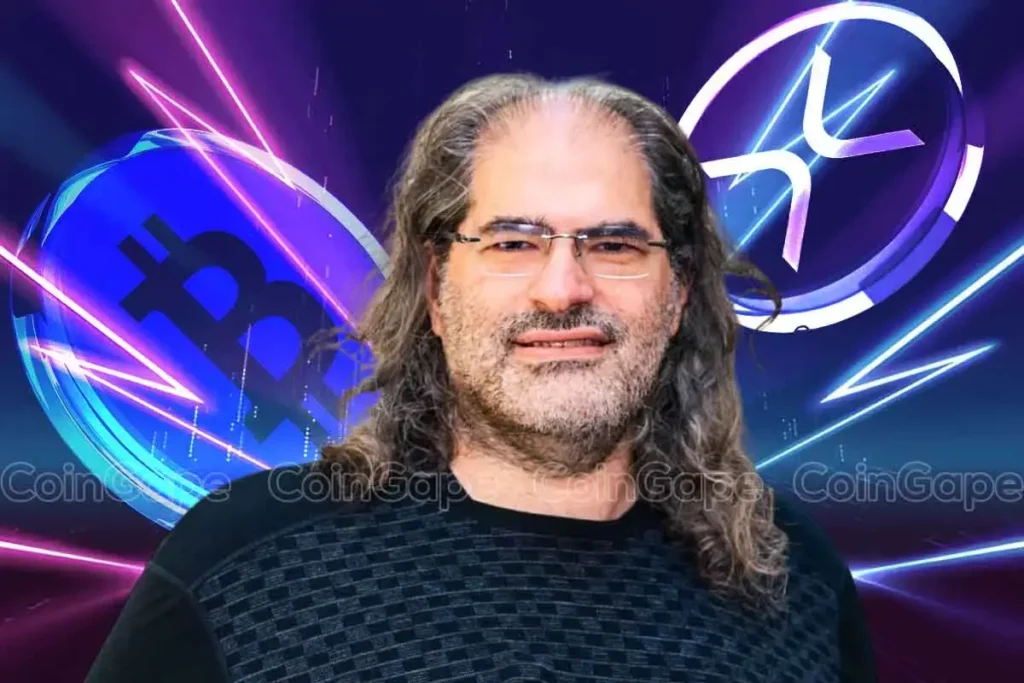XRP vs Bitcoin: Decentralization Insights from Ripple’s CTO Amid Trump’s Crypto Plans
As the cryptocurrency landscape evolves, discussions surrounding XRP and Bitcoin become increasingly sophisticated. Central to this dialogue is a recent statement by Ripple’s Chief Technology Officer, David Schwartz, which provides new insights into the decentralization of the XRP Ledger (XRPL). Schwartz’s assertion that “XRP has no issuer” underscores the unique characteristics that differentiate it from traditional cryptocurrencies, especially in light of the shifting regulatory environment signaled by former President Trump’s crypto reserve plans. This article delves into Schwartz’s insights, the implications for XRPL’s decentralization, and the contextual backdrop of the current crypto ecosystem.
XRPL Decentralization Unpacked
David Schwartz’s clarification on XRPL’s decentralization centers around the independence of the blockchain from Ripple, the company. He asserts that the leadership of Ripple, including CEO Brad Garlinghouse, does not impede the decentralized nature of XRPL. Unlike many cryptocurrencies governed by centralized issuers, XRP was fully pre-mined at the inception of the ledger. This means that all tokens were created upfront, allowing for distribution without the typical supply dynamics prevalent in other crypto ecosystems that can create centralization concerns.
At its core, this differentiates XRP from Bitcoin and other blockchain platforms where mining and issuance are ongoing processes. Schwartz emphasizes that XRPL lacks “rivalrous features,” meaning individuals can acquire XRP directly from the ledger without competition for mining rewards. This aspect fosters a community-driven approach to token acquisition, which is an essential component of genuine decentralization.
Ripple’s Relationship with XRPL
Schwartz’s comments became particularly pertinent following a tweet from UFC champion Conor McGregor, who expressed curiosity about XRPL’s decentralization claims. McGregor’s interest highlights a broader trend: a growing fascination with alternatives to Bitcoin, particularly as speculation mounts about the potential role of cryptocurrencies in the future U.S. economy. Schwartz’s explanation effectively distinguishes the company Ripple from the decentralized attributes of XRPL, providing a clearer understanding for both investors and cryptocurrency enthusiasts about where XRP fits into the broader blockchain narrative.
This clarification addresses a common misconception; that Ripple’s corporate actions somehow influence the decentralized operations of XRPL. According to Schwartz, while Ripple plays a critical role in the development and promotion of XRPL, the foundational aspects of the ledger itself remain intact and decentralized.
The Interest in Cryptocurrency Reserves
As Trump’s crypto reserve plans come into focus, the conversation surrounding the appropriate choice of cryptocurrency for reserves has intensified. Schwartz’s remarks resonate with this conversation, as they provide reassurance to potential investors about XRP’s potential viability as an alternative to Bitcoin in the reserve currency discussion. With growing uncertainty and volatility in traditional finance, policymakers and financial institutions are seeking stable and decentralized alternatives.
Both XRP and Bitcoin have emerged as contenders in this context, but their varying degrees of decentralization present unique considerations for policymakers. Schwartz argues that the ease of accessing XRP directly from the ledger may serve as an attractive feature for users interested in stability and security. Consequently, this sets the stage for deeper explorations into the functionality and resilience of cryptocurrencies in supporting national economic strategies.
The Broader Crypto Ecosystem
The growing interest in altcoins like XRP coincides with a broader movement toward understanding various blockchain technologies, including Cardano and others. Schwartz’s statements open the door for a meaningful dialogue about decentralization across different platforms. For investors and users alike, understanding the unique philosophies underpinning each network is critical for making informed decisions.
In this evolving marketplace, platforms must establish credibility, and transparency is paramount. By articulating the decentralized nature of XRPL, Schwartz contributes to easing apprehensions surrounding XRP, fostering confidence amid a sea of fluctuating crypto assets. This conversation also emphasizes the importance of rigorous due diligence for investors navigating the complex crypto landscape.
Navigating the Future of Cryptocurrencies
As the debate between XRP and Bitcoin escalates, the insights provided by Ripple’s CTO offer critical perspectives on the decentralization of XRPL, particularly in light of potential regulatory frameworks and cryptocurrency reserve considerations. Schwartz’s arguments underline the intrinsic value of understanding the operational mechanisms of different cryptocurrencies and highlight how they could shape both individual and institutional investment strategies.
The ongoing discourse surrounding digital assets reflects a broader societal shift towards adopting alternative monetary systems. As financial ecosystems evolve, so too will the engagement and interactions among cryptocurrencies, showcasing their relative strengths and weaknesses. The complementarity between XRP and Bitcoin could very well drive further innovation, fueling the growth of decentralized finance (DeFi) and blockchain technology.
Conclusion
In conclusion, as the cryptocurrency market grapples with the implications of regulatory changes and emerging use cases, the insights from David Schwartz elucidate a critical facet of XRPL’s functionality. The lack of an issuer and the decentralized nature of XRP provide a unique proposition that may appeal to investors seeking stability amidst uncertainty. The discussions initiated by figures like Conor McGregor and commentators in the space will only continue to accelerate as more individuals and institutions explore the potential of cryptocurrencies as foundational elements in future economic frameworks. As the debate between XRP and Bitcoin rages on, the momentum is clear: decentralization will remain a significant focal point in the evolving narrative of digital currencies.


